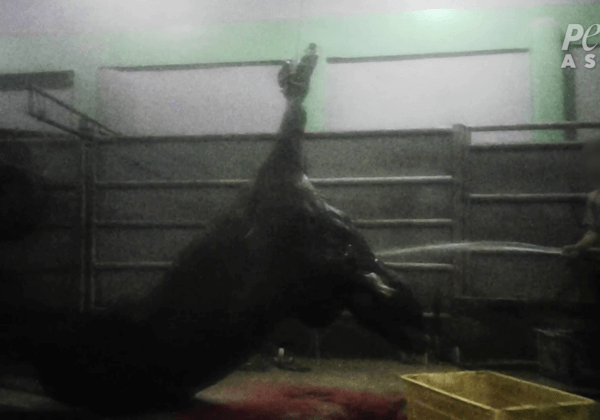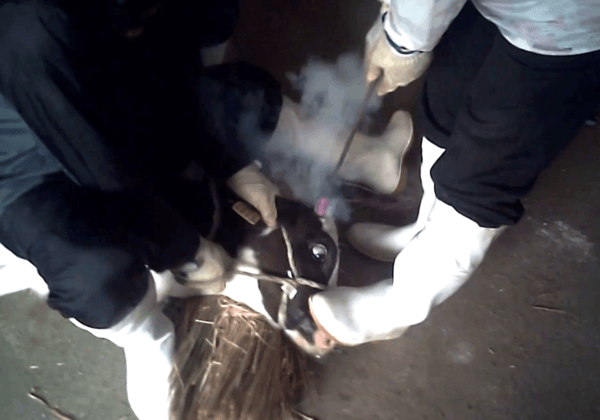The World’s Most Abused Animals: Chickens Used for Meat and Eggs
People who have spent time around chickens know that they are intelligent and inquisitive animals who are keen problem-solvers. Chickens are very social and like to spend their days together scratching for food, taking dust baths, roosting in trees, and lying in the sun. They have complex social structures, adept communication skills, and distinct personalities.
Chickens are so smart that the late Dr. Chris Evans, a former animal behaviorist at Australia’s Macquarie University, said, “As a trick at conferences, I sometimes list (chickens’) attributes, without mentioning chickens, and people think I’m talking about monkeys.”
But chickens raised on factory farms are never given the opportunity to do anything that is natural or important to them. Every year, billions upon billions of these sensitive animals are raised and killed for food, and most of them will spend their lives in total confinement—from the moment they hatch until the day they are slaughtered.
Even chickens raised on “free-range” or “organic” farms are still commonly mutilated by having part of their beaks cut off, and their lives are violently cut short at the same terrifying slaughterhouses that kill chickens from conventional farms.
Tastes Like Cruelty: The Chicken Flesh Industry
Chickens raised for their flesh—called “broilers” by the chicken industry—spend their lives in filthy, ammonia-filled sheds with tens of thousands of other birds. The sheer frustration of being crammed together with so many other chickens causes many birds to develop destructive behavior, such as relentlessly pecking one another.
Most chickens raised for meat are bred to grow unnaturally large in a short amount of time and are fed growth-promoting drugs. Many birds suffer from skeletal problems and even die from ascites—a disease thought to be caused by the inability of their hearts and lungs to keep up with their rapid skeletal growth. These ailments almost never happen in nature.
From Shell to Hell: The Egg Industry
Birds exploited for their eggs—called “laying hens” by the egg industry—are crammed together in wire battery cages that rub off their feathers, chafe their skin, and cripple their feet. Like chickens raised for meat, hens on egg farms are typically denied access to sunlight, fresh air, and anything else that they would enjoy in nature.
When they are very young, the birds have part of their sensitive beaks cut off because, as with “broiler” chickens, the frustration created by their intense confinement causes them to peck one another. Because male chicks can’t lay eggs and are not bred to produce the excessive flesh desired by the meat industry, the tiny birds are discarded and killed soon after hatching—usually by being burned to death, gassed, or ground up alive. Female chicks are sentenced to the same short, miserable life of confinement as their mothers. Although they can live for more than a decade, hens are sent to slaughter when their bodies become too exhausted to continue producing eggs, usually after just two years.
Shackled, Slit, and Scalded to Death: How Chickens Are Slaughtered
Chickens being sent to slaughter are often handled roughly and transported long distances on crowded vehicles through all weather conditions, without adequate food or water. At the slaughterhouse, their legs are forced into shackles, their throats are slit by a machine, and they are plunged into scalding-hot water to remove their feathers. Many are still conscious throughout the whole torturous process.
Save Chickens at Every Meal
The best way to help chickens is to make the ethical decision to stop eating their eggs and flesh altogether and switch to vegan foods.
For great tips, easy ingredient swaps, and free recipes to help you make the transition, take the vegan pledge. If you’re in the Philippines, order PETA’s free vegan starter kit today!









